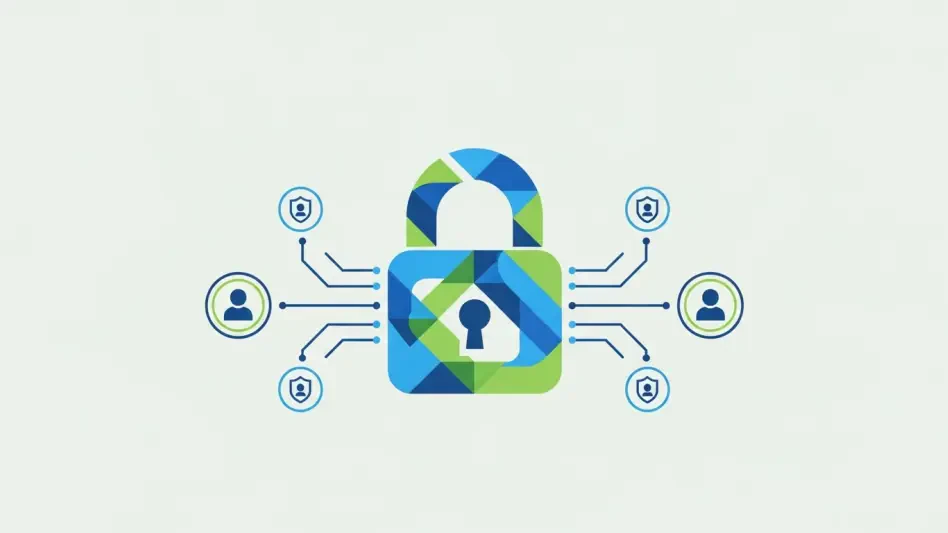Amidst a technology-driven world increasingly vulnerable to cyber threats, a startling revelation of a significant data breach exposed 16 billion username and password pairs on the dark web. This alarming discovery underscores a pressing need to fortify personal cybersecurity, as hackers become more sophisticated in exploiting vulnerabilities during global upheavals. The Department of Homeland Security has urgently called upon Americans to maintain heightened vigilance, as these cyber threats not only target governmental systems but also invade personal realms, risking identity theft and financial losses. One of the most effective yet underutilized countermeasures against such criminal activities is a credit freeze, providing a robust shield against the unauthorized opening of accounts.
Understanding the Dynamics of Credit Freezing
Protecting Personal Information
A credit freeze, a critical tool in personal cybersecurity, plays a pivotal role in preventing unauthorized access to new credit accounts in a victim’s name. Unlike credit monitoring services, which merely alert individuals after suspicious activities occur, a credit freeze acts as a proactive barrier, blocking potential threats before they materialize. Implemented swiftly and easily online, a credit freeze remains a temporary measure until the individual decides to unfreeze it. Crucially, this action has no impact on existing credit card usage or credit scores, maintaining financial flexibility. To execute this protection, one must initiate contact with the three major credit bureaus: Equifax, Experian, and TransUnion. Given its effectiveness, it’s perplexing that a mere 10% of consumers take advantage of credit freezes, as many continue to rely on credit monitoring solutions that fall short in preventing account fraud.
Vulnerability of Children’s Credit
In the realm of cybersecurity, minors often find themselves at heightened risk, primarily due to their pristine credit histories, which fraudsters exploit with relatively low risk of immediate detection. Parents and guardians are strongly encouraged to freeze their children’s credit reports, creating an additional layer of security against unauthorized use of their Social Security numbers. While the focus remains on individual cybersecurity, children’s vulnerable status necessitates urgent attention, particularly for families engaged with financial institutions or companies maintaining Social Security data. Implementing this measure considerably reduces the risk of identity theft and equips parents with a reliable, cost-free solution to safeguard their children’s financial futures.
Addressing the Expanding Cybersecurity Frontier
The Role of Proactive Measures
Adopting a credit freeze represents a potent yet straightforward defensive strategy, invaluable for any individual with existing financial interactions. This preventive measure becomes vital when personal information, like Social Security numbers, is stored across various databases from credit cards to tax returns. Cyber attackers continuously hone their skills, breaching security protocols with alarming sophistication and persistence. By embracing credit freezes, individuals equip themselves with a formidable tool against the unsettling landscape of digital threats, enhancing resilience without enduring financial strain or operational inconvenience.
Advocating for Wider Adoption
Reflecting on the emergent cybersecurity panorama, widespread adoption of preventive tactics, particularly credit freezing, stands as a salutary step towards achieving comprehensive security. By enhancing public awareness and encouraging proactive steps, the broader population can be significantly shielded from identity theft and financial deceit. Although credit monitoring services offer invaluable insights into personal account activities, they fall short as preventive measures against opening unauthorized accounts. Thus, stakeholders across industries and governmental bodies must advocate for educational initiatives, empowering consumers to embrace credit freezes as a standard preventive approach. This comprehensive adoption promises a more secure digital environment, curbing cyber threats and safeguarding individual and familial peace of mind.
Building Towards a Secure Digital Future
In the field of cybersecurity, minors often face increased risks, primarily because fraudsters see them as easy targets. Their untouched credit histories make them particularly vulnerable as scammers exploit these clean slates, facing low chances of immediate detection. To combat this, parents and guardians should strongly consider freezing their children’s credit reports. This action serves as an added layer of security, preventing unauthorized use of their children’s Social Security numbers. Although individual cybersecurity is the general focus, the susceptibility of children demands urgent attention—especially for families connected with financial institutions or businesses handling Social Security numbers. Implementing a credit freeze significantly lowers the risk of identity theft and offers parents a reliable, cost-free method to safeguard their children’s financial futures. This proactive measure is invaluable for protecting against potential long-term repercussions and securing a stable financial start for young ones.








